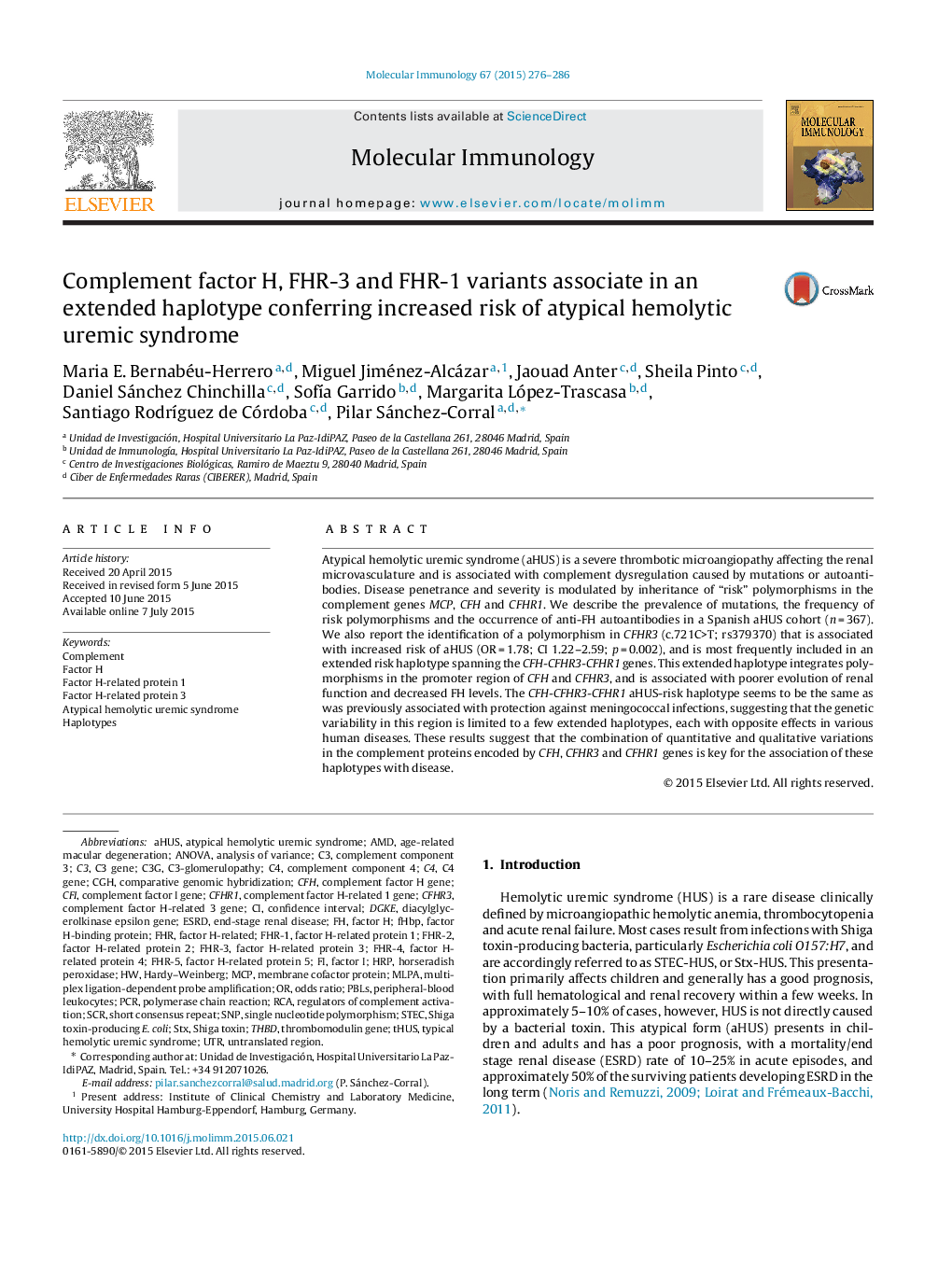| کد مقاله | کد نشریه | سال انتشار | مقاله انگلیسی | نسخه تمام متن |
|---|---|---|---|---|
| 5916635 | 1163753 | 2015 | 11 صفحه PDF | دانلود رایگان |

- Complement dysregulation is a major pathogenic mechanism in aHUS.
- We report complement mutations, risk variants and autoantibodies in 367 aHUS patients.
- The CFHR3*B allele is another susceptibility factor in aHUS.
- CFH(H3)-CFHR3*B-CFHR1*B is the major haplotype in aHUS.
- The relative levels of factor H, FHR-3 and FHR-1 could modulate aHUS susceptibility.
Atypical hemolytic uremic syndrome (aHUS) is a severe thrombotic microangiopathy affecting the renal microvasculature and is associated with complement dysregulation caused by mutations or autoantibodies. Disease penetrance and severity is modulated by inheritance of “risk” polymorphisms in the complement genes MCP, CFH and CFHR1. We describe the prevalence of mutations, the frequency of risk polymorphisms and the occurrence of anti-FH autoantibodies in a Spanish aHUS cohort (n = 367). We also report the identification of a polymorphism in CFHR3 (c.721C>T; rs379370) that is associated with increased risk of aHUS (OR = 1.78; CI 1.22-2.59; p = 0.002), and is most frequently included in an extended risk haplotype spanning the CFH-CFHR3-CFHR1 genes. This extended haplotype integrates polymorphisms in the promoter region of CFH and CFHR3, and is associated with poorer evolution of renal function and decreased FH levels. The CFH-CFHR3-CFHR1 aHUS-risk haplotype seems to be the same as was previously associated with protection against meningococcal infections, suggesting that the genetic variability in this region is limited to a few extended haplotypes, each with opposite effects in various human diseases. These results suggest that the combination of quantitative and qualitative variations in the complement proteins encoded by CFH, CFHR3 and CFHR1 genes is key for the association of these haplotypes with disease.
Journal: Molecular Immunology - Volume 67, Issue 2, Part B, October 2015, Pages 276-286